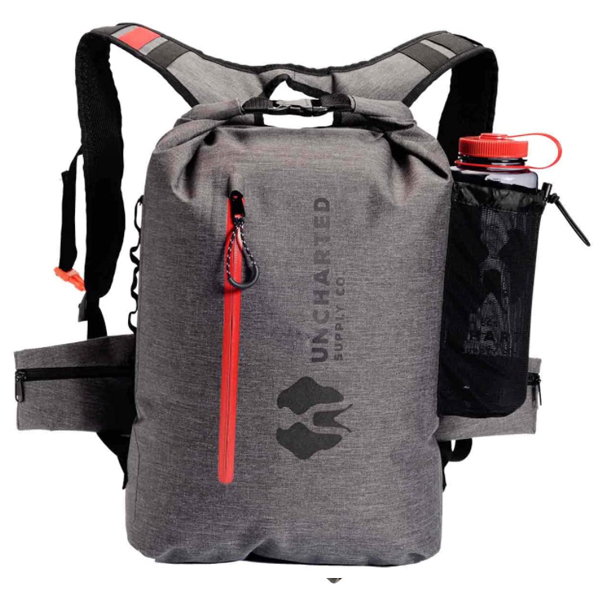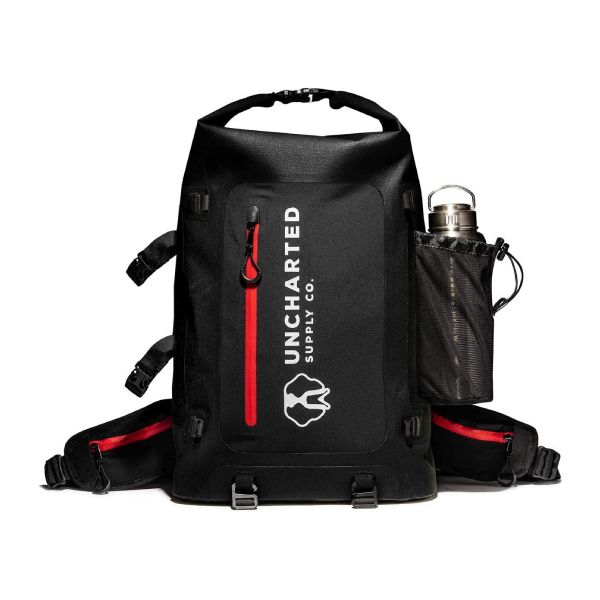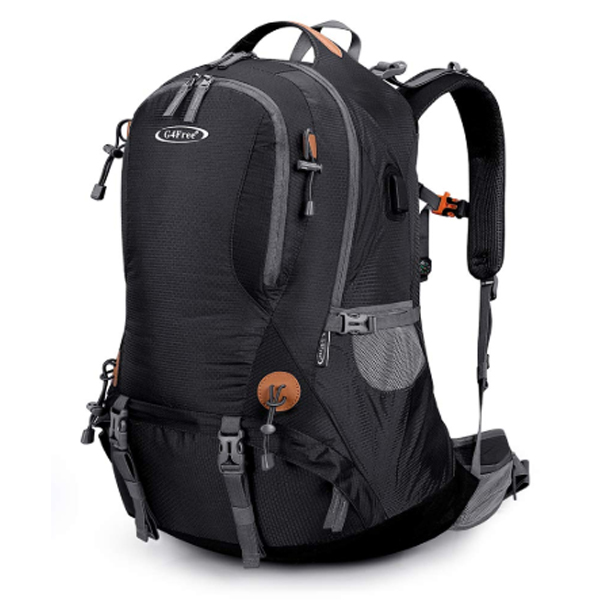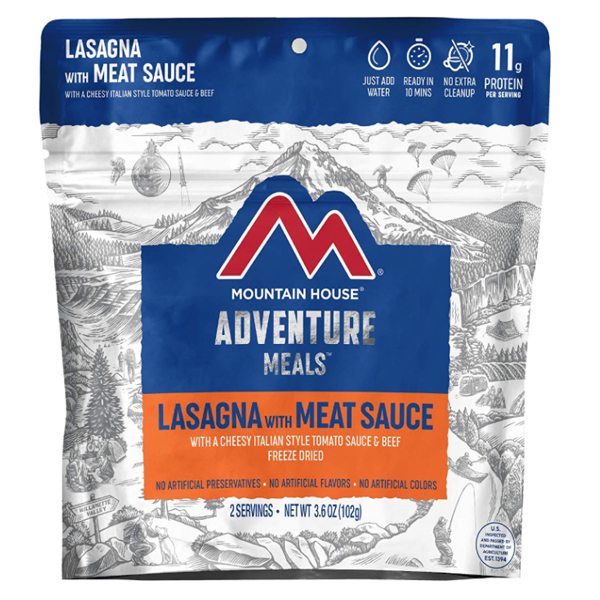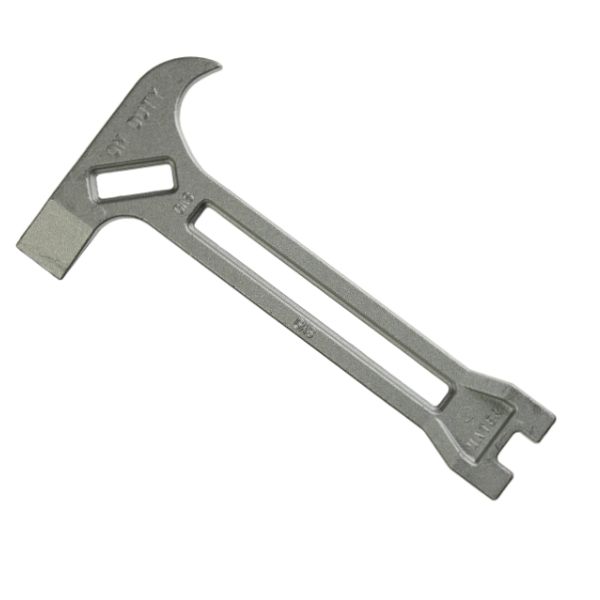Emergency Preparedness for LDS
Emergency Preparedness resources for members of The Church of Jesus Christ of Latter-Day Saints (Mormons)
Hey there! This article was written by members for members. The goal is to provide information and resources to help you get prepared or teach others how to get prepared.
There's a good chance you're looking for emergency prep resources because you were recently called to serve as an emergency preparedness specialist for your ward or stake. Good news! We have a lot here to help you out.
Emergency Prep Teachings
As members of The Church of Jesus Christ of Latter-Day Saints (AKA Mormons or LDS) we are taught preparedness skills throughout our lives. I was raised in a family that stocked the "storage room" with a year's supply of food, toiletries, extra blankets, and other supplies we'd need if things got bad.
On a couple of brief occasions our family had to rely on those resources. We were always glad we were blessed to never go without the necessities.
Members of the church are some of the most well prepared households. We have a reputation for our skills and practices.
The Mormon Neighbors
Earlier this year a neighbor family moved in. During our first visit with them religion came up and they learned we were "Mormons". A couple of days later they came over to "see our prepping situation." Honestly, I was reluctant to show them our wares. However, I felt they were truly inquisitive so they could begin prepping themselves. We talked about food storage, generators, wool blankets, water filtration, etc.
A week later the guy came over and asked if I would help him unload his new generator. He told me they had been to the bishop's storehouse, secured water filters, and more. They felt so much more safe when they were prepared.
A little foresight makes a huge difference when actual emergencies come along.
Wind Storm in a Forest Community
In the past 4 years we've had two major windstorms blast through our forested town. Hundreds of trees were either uprooted or shattered and fell. They covered roads, lawns, and took out powerlines. Worse yet, they crushed homes and cars. We spent weeks removing trees and sealing up roofs so people could stay sheltered while construction crews worked overtime to make repairs.
Members of the church employed their generators, had people come over to shower and wash laundry. We provided food and manpower to organize tree removal teams. The members of the church were first to organize and were huge assets to the community.
Every community has its threats. It's a matter of time before some natural or man made disaster causes us to take action. Best to be ready!
LDS Church Emergency Preparedness Websites
- The Church of Jesus Christ of Latter-Day Saints
- Provident Living (church emergency prep site)
- Food Storage (church food storage site)
- Family Finances (church financial resource site)
Emergency Kit Checklists (DIY)
On the Internet there are a ton of different emergency kit checklists and product lists. We've researched blogs, Scout books, and text books, interviewed EMTs, medics, survivalists, CERT instructors, and more to assemble a series of emergency checklists. Each one has a printable version and recommended products and where to buy them. We want this to be EASY!
- All Emergency Kit Checklists
- 72 Hour Kits - Essential gear and supplies for 3 days away from home (clothing, toiletries, communication, tools, lights, etc.)
- Survival Essentials - The bare essentials to survive away from home (tools, water filtration, first aid, etc.)
- First Aid Kits - The critical first aid products and supplies for home and family (bandages, ointmentes, medications, etc.)
- Survival Toiletries - The critical toiletry supplies for time away from home (dental hygiene, lip care, toilet paper, nail clippers, etc.)
- Bug Out Bag - The ultimate go bag for evacuation scenarios (emergency shelter, tools, lights, fire starters, cordage, communication, etc.)
- Evacuation - The checklist for evacuation (valuables, documents, hygiene, etc.)
- More...

About This Article
Content:
Scope:
Difficulty:
Table of Contents
- Introduction
- LDS Church Resources
- LDS Emergency Prep Teachings
- Applying What We're Taught
- Teaching Tips for Ward and Stake Specialists
- Preparedness Mindset
LDS Member Resources
LDS Preparedness Teachings
The Church teaches its membership to actively prepare for the proverbial rainy day. Here are the key principles we're taught:
General LDS Church Preparedness Teachings
The Church of Jesus Christ of Latter-Day Saints strongly encourages emergency preparedness and self reliance. It also warns against "extreme preparation or survivalism". There's a point when a household is prepared enough. We should strive to get to that point and then focus on other aspects of life.
- Full Church Handbook
- Section on Providing for Temporal Needs and Building Self-Reliance
- Avoid Extreme Preparation or Survivalism
Key Elements of Temporal Preparedness
- Finances
- Pay tithes and offerings
- Avoid debt
- Live within a budget
- Save for the future
- Obtain an appropriate education
Home Storage
- Food
- Water
- Other necessities
Members increase their financial preparedness by:
- Paying tithes and offerings (see Malachi 3:8–12).
- Eliminating and avoiding debt to the extent possible.
- Preparing and living within a budget.
- Saving for the future.
- Obtaining an appropriate education to help them provide for themselves and their families (see 22.3.3).
Preparedness also includes developing a plan for how to take care of basic needs during an emergency. Members are encouraged to build both a short-term and longer-term supply of food, water, and other necessities.
For more information, see Personal Finances for Self-Reliance and “Temporal Preparedness Resources.”
Extreme Preparation or Survivalism
The Church encourages self-reliance. Members are encouraged to be spiritually and physically prepared for life’s challenges. See 22.1.
However, Church leaders have counseled against extreme or excessive preparation for possible catastrophic events. Such efforts are sometimes called survivalism. Efforts to prepare should be motivated by faith, not fear.
Church leaders have counseled members not to go into debt to establish food storage. Instead, members should establish a home storage supply and a financial reserve over time. See 22.1.4 and “Food Storage” (Gospel Topics, topics.ChurchofJesusChrist.org).
We're taught these principles from an early age. We have seminars, firesides, church talks, lessons, and family instruction on how to improve our skills and situation. We truly are taught to be prepared for whatever may come.
New members, non-members, and others just getting started with their preparation activities often get overwhelmed. How to know where to start?
We engaged with a number of members (Bishops, emergency prep specialists, avid preppers, etc) to put together a beginners checklist. The goal is to help you take measurable steps toward full preparation. The checklist includes financial savings, food storage, power generation, first aid kits and training, etc.
Emergency Preparedness for Beginners - 1-Year Supply - Includes Printable Checklist
Where Do I Start?
Emergency Prep Checklist for Beginners
This checklist helps people starting out. Sample items:
1 Month
- First Aid - Buy a basic first aid kit
- Financial - Start by saving 1 month's salary
- Water - Buy a basic portable water filter.
- Water - Buy a 5-gallon jug. Fill it.
- Financial - Save another month's salary (2 total)
- Water - Buy a 5-gallon jug. Fill it.
- Food - Store 1 month of day to day ......
Check Out The List
Applying What We're Taught
About once a year, sometimes more, our ward gets motivated to put on some emergency prep seminars and have special guests come in to show us how to do it. They present, hand out checklists, and send us on our way. Over the years you start to pick up some skills and knowledge but usually we go home and file the checklists and instructions away or toss them and little is done to improve our situation.
We want to change that cycle. This entire site is dedicated to recommending the right products for emergency preparations.
Financial Preparedness
There's really only one way to apply financial preparedness teachings: live within your means and save/invest the excess.
So many people have to keep up with others and spend every dime to do so. We know doctors who take home huge sums of money every year but live paycheck to paycheck. No matter how much you take home, adjust your expenses to be less than your income and save.
Set goals so you can see monthly progress. I remember the first time I hit a huge financial goal. It was so rewarding!
72-Hour Kits
We are constantly urged to have an evacuation kit handy that will last us at least 3 days. These "go-bags" contain the essentials. More avid preppers will build a bug out bag for longer term survival if things get really bad.
Usually when we are taught about 72 hour kits we're given a checklist and sent on our way. I have at least a dozen of them. However, no one recommends the products for those checklist items. This site changes that! Our checklist recommends products for every item and where to buy them. So easy!!
Food and Water Storage
Learn about our approach to food storage, water storage, and water filtration. Here are the products we recommend as well: food, water, filtration. Again, the goal is to make it easy so you can take action without a ton of research.
Self Sufficiency
We love the church's Provident Living website. Check out those resources.
First Aid
We believe every household should have basic first aid skills and supplies. It's not only recommended but critical to be able to care for your home. Here are the products we recommend for first aid kits and supplies.
Health Code
The Word of Wisdom guides us to healthy living. It limits our diets to healthy foods and beverages.
How to Teach Others in Our Specialist Callings
So, you just got called to an emergency preparedness specialist calling? For some, it's not a big deal. For some of us, it's daunting! How do you prioritize what to teach and how do you teach it? Better yet, how do you inspire real change in the members you are teaching?
This website is dedicated to helping members prep and know what products to consider in their efforts.
I've sat in dozens of emergency prep meetings and walked out with no idea where to start or what to do next. I got so frustrated I just filed away the papers I was given and went on with life. Until I got serious and started to dig in, I didn't realize how unprepared our family was and how most of the "gear" I had acquired over the years was pretty useless in a real emergency.
We set a budget and started investing in real food, water, gear and supplies. I threw away so many fake swiss army knives, plastic flashlights, half-used first aid kits that could only treat finger cuts, and more.
We started here: prepping for beginners checklist. Every month we took action and within a little over a year we had a 1-year supply of food, water, cash reserves, first aid, medication, toiletries, and more.
Here's the kicker: in 2020, COVID wiped out our business, a wind storm knocked out power for days, and we had some unexpected health events. Because we were prepared, we survived. We made it. We got back on our feet and started to recover our preparedness status. It was an incredible experience and proof that these principles have real life applications.
When you teach people, follow these principles:
- Choose one concept (the most important at the time) and focus on it
- What vulnerabilities does your community face? Wild Fires? Extreme Cold? Tornados? Hurricanes? Earthquakes?
- Illustrate what success looks like
- What supplies and gear should they have?
- What training should they acquire?
- Provide supporting documentation
- Recommend actual products that will push them to success
Emergency Prep Class Experts
Here's the biggest tip I learned as a ward prep specialist: DON'T BE THE EXPERT. As a Scout leader I quickly learned that others were way more qualified to teach certain things and they were very willing to do it. I applied the same concept to emergency prep seminars and classes. I invited EMTs, Firemen, Police, the expert canner in the ward, ex-military personnel, CERT trainers, CPR trainers, financial planners, and more.
I actually never taught a class. I was the facilitator and organizer and I would introduce the real experts. They came prepared and taught way better than I every could.
We learned the following principles (including what to buy to be successful):
- DIY first aid kits
- DIY 72 hour kits
- Financial planning 101
- CPR
- How to service a generator
- How to use a FSR and HAM radio
- How to daisy chain car batteries for extended generator usage (advanced and way cool for preppers)
- How to build a communications tree
- What the ward should do if a large-scale disaster happens (this was my FAVORITE and sparked debate)
- CERT Training - we had the city CERT pros comes and train us for 8 evenings spread out over 4 weeks (wait, maybe this was my FAVORITE!). We lived in Vegas at the time and they started out with the question, "How vulnerable do you think Vegas is?" The real answer was eye opening and they held our attention the rest of the course.
- More...
The key is to find pros to teach the classes so your life is so much easier.
Hold regular meetings at times of the week/day that can attract the most people. We targeted Saturday mornings or weekday evenings (Monday/Tuesday).
Emergency Preparedness Resources

Popular Emergency Checklists
All | Bug Out Bag | 72-Hour Kit |
Evacuation | First Aid
Scouting - Wilderness First Aid
Emergency Plan (ready.gov)
Emergency Contact Info (ready.gov)
Emergency Plan for Schools (ready.gov)
Preparedness Mindset
Let's assume we agree that emergency preparedness is critical and a worthwhile effort. Let's imagine for a minute that our entire ward has heeded the word of the church leadership and we're ready to go. If you're really prepared, now what?
We posed these 2 questions to the LDS emergency prep group on Facebook:
What happens if you are prepared and a disaster happens? It's only a matter of time before unprepared neighbors and citizens become desperate enough to come looking for food and resources. Do we share?
What do you think?
The answers from the Facebook group fascinated me. They all fell into 3 categories:
- "I was taught growing up to shoot and shoot to kill" (actual quote)
- "Christ would share so I would share. No way would I sit there and eat while a neighbor went hungry" (actual quote)
- "I'd follow the spirit and church leadership - they'd be inspired to know how to manage our collective resources" (actual quote)
I personally fell within the 3rd camp. Standing your ground is dangerous for so many parties. "Me against the world" is a losing battle. Sharing everything with the unprepared is also dangerous. Soon, you're out in the cold like they were.
I propose that assembling as a ward and managing collective resources would be an incredibly strong position. Skills, supplies, expertise, and energy could all be shared and distributed effectively. Neighbors could be included in the mix if appropriate. Resources could be protected by the group and general safety would be enhanced.
We should learn to collaborate and work together. I think that's what is intended in ward and stake units.
Good luck in your emergency prep efforts!!
Recommended Next Topic
1This post may contain affiliate links. If you make a purchase, I may earn a small commission at no additional cost to you.
2 As an Amazon Associate we earn from qualifying purchases.
3 Most reviews are based on personal experience from one of our content editors. Some are based on research and the opinions of other reviewers.






